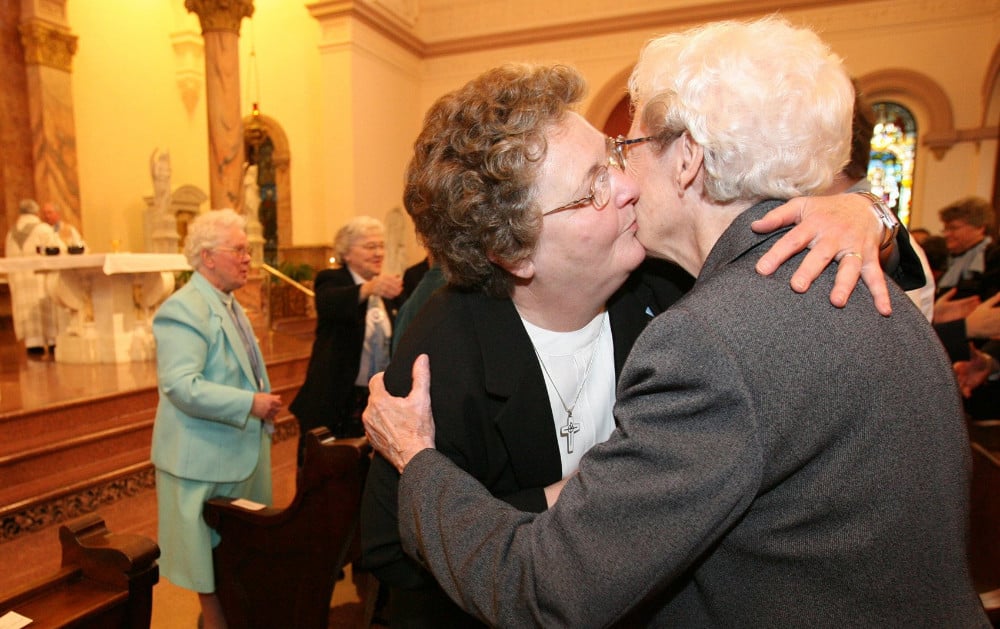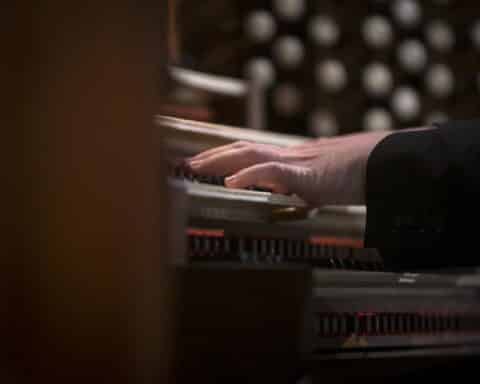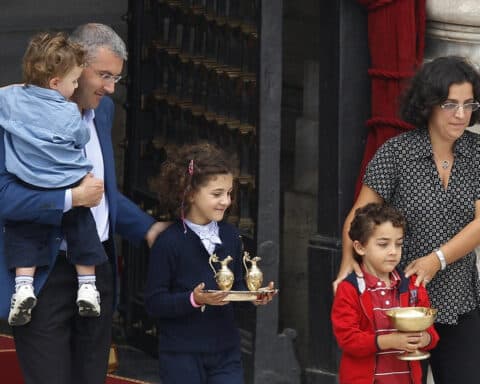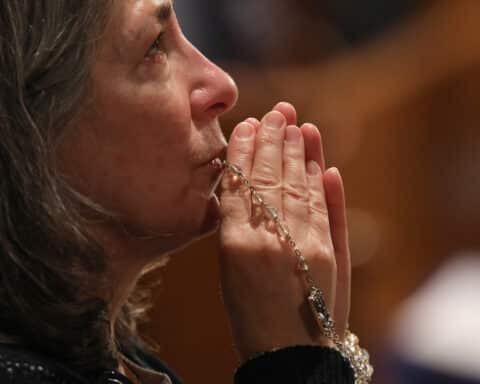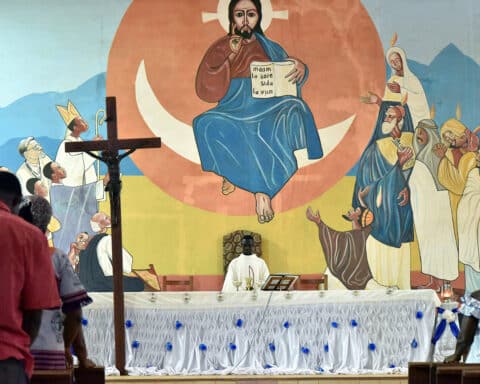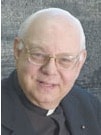
Essential aspects of the Mass would be quite familiar. The central figure would be a priest, sacramentally ordained when a bishop, who traced his own credentials to one of the apostles of the Lord, laid hands on the priest’s head and prayed to the Holy Spirit in a ceremony exactly corresponding to ordinations today.
Special, and unique, would have been bread and wine, which believers even back then fervently held to be, after the priest repeated the words of Christ, the body and blood of the Lord, to be consumed as food for the soul.
The priest, or an ordained deacon, would read the Scriptures and then explain them, and, as part of the ceremony, all would exchange among themselves a kiss, wishing each other a life blessed with the peace of Christ.
Everyone would see the Mass as the most important event in their religion and in their lives, and they celebrated Mass on Sunday, the day of the Lord’s resurrection. Christ lives!
These aspects of the Mass have never changed. A priest, the Scriptures, bread and wine, belief that the bread and wine literally become the body and blood of Jesus, consumption of holy Communion, Sunday, and the kiss of peace, all are parts of Masses celebrated today, from Rome to Hong Kong to Cape Town to Palm Beach, Florida, to Nome, Alaska.
Why, and how, did the kiss of peace become part of the Mass?
Clearly stated several times in St. Paul’s epistles, and in the First Epistle of Peter, pioneer Christians greeted each other with a kiss. It was more than a casual greeting. The early Christians kissed each other to show that they took seriously the Lord’s command to love all.
The kiss of peace was in the Eucharistic liturgy celebrated in Rome in the mid-second century. Fourteen centuries later, the world’s bishops met in Trento, in northern Italy — called “Trent” by the English-speaking — and made many changes in Catholic worship. Following these discussions, Pope St. Pius V authorized a new ritual, called the Tridentine liturgy.
It retained the kiss of peace, and old missals, published when the Tridentine liturgy was the standard, have the kiss of peace printed on the page in black and white, but in the Tridentine liturgy, it was not just the act of kissing another on the cheek. Words, prescribed by the Church, were exchanged — Latin words. Few spoke Latin. The kiss of peace fell into disuse, although it always was part of solemn high Masses — Masses in monasteries, seminaries and so on.
Pope St. Paul VI changed the liturgy in the 1960s. Available in the common language of the congregation, the kiss of peace was left in the ritual, and its use encouraged.
In Europe, to this day, a kiss is not uncommon, even among men. In this country, it is not customary. Catholic celebrations of Mass in the United States use handshakes or nods of the head, but then have come restrictions due to COVID.
Regardless, the kiss of peace at Mass is ancient and most expressive. It has a purpose and a meaning.
Understanding the purpose and meaning helps Catholics as they place themselves into the spirit and the essence of the Mass. As Christ asked, they quite publicly say that they “love one another,” and, critically, they make this statement emphatically moments before they receive into their actual beings the body, blood, soul and divinity of Christ, the Son of God, who loved us much, and who is pure, life-giving love.
What a profession of faith, the kiss of peace, a part of the Mass for so very, very, long!
Msgr. Owen F. Campion is OSV’s chaplain.

